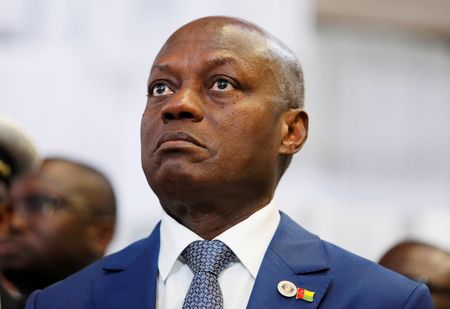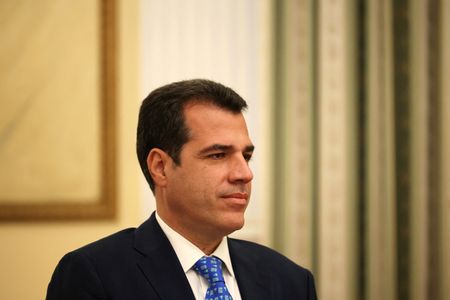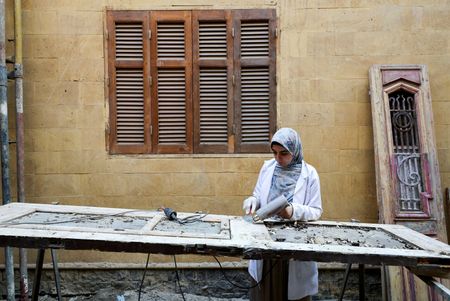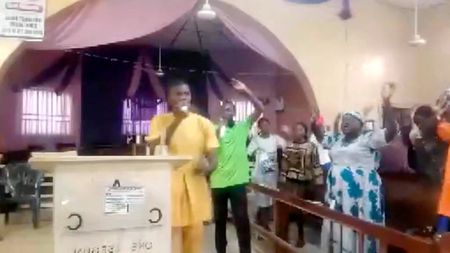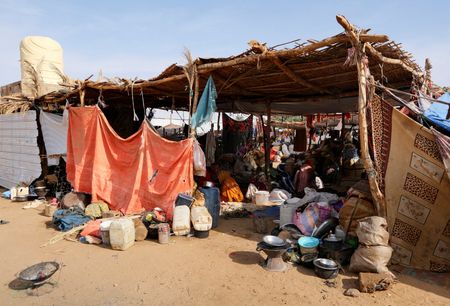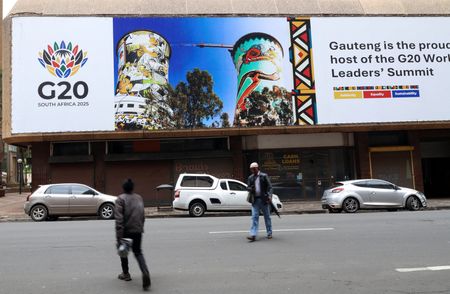BISSAU (Reuters) -Guinea-Bissau President Umaro Sissoco Embalo, a 53-year-old ex-army general, is seeking a second term in a November 23 vote, but faces 11 challengers in the West African nation with a history of political instability.
Following are details on the main opposition candidates:
FERNANDO DIAS
A relatively inexperienced and little-known candidate, Dias, 47, has emerged as the unlikely top challenger to Embalo, who is seeking to become the first incumbent president to win a second term in the West African nation in three decades.
That is because he has received the backing of former Prime Minister Domingos Simoes Pereira, who came second in the disputed 2019 presidential election.
Pereira is the standard-bearer of the African Party for the Independence of Guinea and Cape Verde (PAIGC), which was founded by revolutionary leader Amilcar Cabral and led the nationalist movement for independence from Portugal. The PAIGC won the legislative elections in 2019 and 2023.
This year, however, Pereira and the PAIGC-led PAI Terra Ranka coalition have been barred from contesting, with authorities saying they were late to submit the necessary paperwork, prompting Pereira to throw his support behind Dias.
“The unexpected PAIGC–Dias alliance challenges the regime’s certainty of a swift victory, making a second election round likely,” Paulin Maurice Toupane, a senior researcher for West Africa at the Institute for Security Studies, said in a note.
A runoff will be held if no candidate wins more than 50% of votes.
Dias studied law in Bissau and is the president of the Party for Social Renewal (PRS), which has traditionally been backed by the Balanta ethnic group, the country’s largest.
He has vowed to promote security in the coup-prone country while warning that Embalo will greatly enhance the powers of the presidency through a constitutional referendum if re-elected.
JOSE MARIO VAZ
Vaz, 67, served as president from 2014 to 2020, becoming the first to complete a full term since Guinea-Bissau attained independence from Portugal in 1974.
His tenure was marred by political infighting and corruption, and he lost the 2019 election in the first round, failing to reach the runoff between Embalo and Pereira. He received just 12% of the vote, conceded defeat and threw his support behind Embalo.
Critics say Vaz failed to control corruption or the flow of drugs through forested islands off the coast.
He cycled through seven prime ministers during his time in office, reinforcing Guinea-Bissau’s reputation for political chaos.
That has not stopped him from vowing to restore stability to government if elected again.
BACIRO DJA
Dja, a 52-year-old former defence minister, served two brief stints as prime minister when Vaz was president, in 2015 and again in 2016.
Both times he failed to win the full support of the PAIGC, which he needed to govern effectively.
In the 2019 presidential election, he finished sixth with just over 1% of the vote.
JOAO BERNARDO VIEIRA
Joao Bernardo Vieira, 48, is the nephew and namesake of Guinea-Bissau’s longest-serving president, who ruled mostly uninterrupted from 1980 to 1999 and again from 2005 to 2009, when he was assassinated by soldiers.
The younger Vieira formerly served as spokesperson for the PAIGC, but he now represents the African Party for Freedom and Development of Guinea, or PALDG.
(Reporting by Alberto Dabo and Anait Miridzhanian; Editing by Robbie Corey-Boulet and Andrew Cawthorne)

